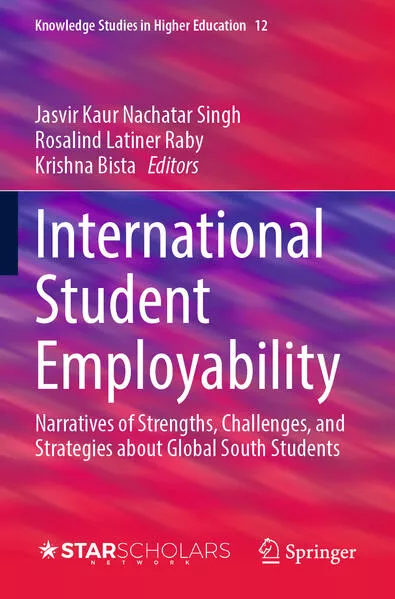
- Publikationen ca: 3
- Fragen & Antworten
Jasvir Kaur Nachatar Singh
Jasvir Kaur Nachatar Singh is an award-winning Lecturer at the Department of Management, Sport and Tourism, La Trobe Business School, La Trobe University, Australia. In 2020, Dr Singh received an international teaching recognition from Advance HE, UK as a Fellow (FHEA). In 2018, Dr Singh received two La Trobe University Teaching Awards and Best Presenter Award at the Global Higher Education Forum, Malaysia. Dr Singh’s research expertise is in higher education discipline with a particular interest exploring international students’ current issues such as their academic success, lived experiences, employability, career aspirations as well as learning experiences in a blended learning environment. In addition, Dr Singh also explores lived experiences of international academics and Dr Singh’s recent work is on international academics with leadership positions. Dr Singh has published several articles in high impact journals and has presented at numerous national and international higher education conferences in Malaysia, Hong Kong, New Zealand, Thailand, Hawaii, Japan and Australia. In 2020, Dr Singh was appointed as the Associate Editor for Higher Education Research and Development journal. In 2018, Dr Singh was appointed as a Research Fellow at the Malaysian National Higher Education Research Institute.
Rosalind Latiner Raby, Ph.D., is a Senior Lecturer at California State University, Northridge in the Educational Leadership and Policy Studies Department of the College of Education. Dr. Raby is also the Editor-in-Chief, Journal of International & Comparative Higher Education. She is also an Affiliate Faculty, Centre for Higher Education Internationalisation (CHEI), Universita Cattolica del Sacro Cuore, Milano. Since 1984, Dr. Raby has worked with community college faculty and administrators to help them internationalize their curriculum, their college programs and college mission statements. Among her many publications on the topic of international education and community colleges are: Unintended Consequences of Internationalization in Higher Education: Comparative International Perspectives on the Impacts of Policy and Practice (co-edited with Shahrzad Kamyab) (Routledge, 2023); Study Abroad Opportunities for Community College Students and Strategies for Global Learning (co-edited with Gregory Malvaux) (IGI-Global, 2018); and Handbook of Comparative Studies on Community Colleges and Global Counterparts (co-edited with Edward Valeau) (Springer, 2016); International Education at Community Colleges (co-edited with Edward Valeau) (Springer, 2017).
Krishna Bista is a Professor in the Department of Advanced Studies, Leadership and Policy at Morgan State University, Maryland (USA). His research focuses on online teaching, global student mobility, internationalization, and artificial intelligence in academic research. Previously, Dr. Bista served as the Director of Global Education at the University of Louisiana at Monroe, where he was Chase Endowed Professor of Education in the School of Education. Dr. Bista is the founding editor of the Journal of International Students, a quarterly publication in international education. He is also the founding chair of the Study Abroad and International Students SIG at the Comparative and International Education Society (CIES).
International Student Employability
This book explores how international undergraduate and graduate students navigate their higher educational institutional (HEI) experiences and employability prospects in both Global North and Global South universities. The chapter authors examine how students from the Global South use their agency to apply their HEI experiences to meet their needs, gain skills, and envision alternative pathways to adapt to economic, environmental, and political changes.
International Student Employability
This book explores how international undergraduate and graduate students navigate their higher educational institutional (HEI) experiences and employability prospects in both Global North and Global South universities. The chapter authors examine how students from the Global South use their agency to apply their HEI experiences to meet their needs, gain skills, and envision alternative pathways to adapt to economic, environmental, and political changes.
International Student Employability
This book explores how international undergraduate and graduate students navigate their higher educational institutional (HEI) experiences and employability prospects in both Global North and Global South universities. The chapter authors examine how students from the Global South use their agency to apply their HEI experiences to meet their needs, gain skills, and envision alternative pathways to adapt to economic, environmental, and political changes.


